第4章 INTRODUCTORY NOTE(4)
Thoughtful people, as I have already stated, talk a good deal about personality. But they are, nevertheless, filled with doubts when their children are not just like all other children; when they cannot show in their offspring all the ready-made virtues required by society. And so they drill their children, repressing in childhood the natural instincts which will have freedom when they are grown. People still hardly realise how new human beings are formed; therefore the old types constantly repeat themselves in the same circle,--the fine young men, the sweet girls, the respectable officials, and so on. And new types with higher ideals,--travellers on unknown paths, thinkers of yet unthought thoughts, people capable of the crime of inaugurating new ways,--such types rarely come into existence among those who are well brought up.
Nature herself, it is true, repeats the main types constantly.
But she also constantly makes small deviations. In this way different species, even of the human race, have come into existence. But man himself does not yet see the significance of this natural law in his own higher development. He wants the feelings, thoughts, and judgments already stamped with approval to be reproduced by each new generation. So we get no new individuals, but only more or less prudent, stupid, amiable, or bad-tempered examples of the genus man. The still living instincts of the ape, double, in the case of man, the effect of heredity. Conservatism is for the present stronger in mankind than the effort to produce new types. But this last characteristic is the most valuable. The educator should do anything but advise the child to do what everybody does. He should rather rejoice when he sees in the child tendencies to deviation. Using other people's opinion as a standard results in subordinating one's self to their will. So we become a part of the great mass, led by the Superman through the strength of his will, a will which could not have mastered strong personalities. It has been justly remarked that individual peoples, like the English, have attained the greatest political and social freedom, because the personal feeling of independence is far in excess of freedom in a legal form.
Accordingly legal freedom has been constantly growing.
For the progress of the whole of the species, as well as of society, it is essential that education shall awake the feeling of independence; it should invigorate and favour the disposition to deviate from the type in those cases where the rights of others are not affected, or where deviation is not simply the result of the desire to draw attention to oneself.
The child should be given the chance to declare conscientiously his independence of a customary usage, of an ordinary feeling, for this is the foundation of the education of an individual, as well as the basis of a collective conscience, which is the only kind of conscience men now have. What does having an individual conscience mean? It means submitting voluntarily to an external law, attested and found good by my own conscience.
It means unconditionally heeding the unwritten law, which I lay upon myself, and following this inner law even when I must stand alone against the whole world.
It is a frequent phenomenon, we can almost call it a regular one, that it is original natures, particularly talented beings, who are badly treated at home and in school. No one considers the sources of conduct in a child who shows fear or makes a noise, or who is absorbed in himself, or who has an impetuous nature. Mothers and teachers show in this their pitiable incapacity for the most elementary part in the art of education, that is, to be able to see with their own eyes, not with pedagogical doctrines in their head.
I naturally expect in the supporters of society, with their conventional morality, no appreciation of the significance of the child's putting into exercise his own powers. Just as little is this to be expected of those Christian believers who think that human nature must be brought to repentance and humility, and that the sinful body, the unclean beast, must be tamed with the rod,--a theory which the Bible is brought to support.
I am only addressing people who can think new thoughts and consequently should cease using old methods of education. This class may reply that the new ideas in education cannot be carried out. But the obstacle is simply that their new thoughts have not made them into new men; the old man in them has neither repose, nor time, nor patience, to form his own soul, and that of the child, according to the new thoughts.
Those who have "tried Spencer and failed," because Spencer's method demands intelligence and patience, contend that the child must be taught to obey, that truth lies in the old rule, "As the twig is bent the tree is inclined."
BENT is the appropriate word, bent according to the old ideal which extinguishes personality, teaches humility and obedience.
But the new ideal is that man, to stand straight and upright, must not be bent at all only supported, and so prevented from being deformed by weakness.
One often finds, in the modern system of training, the crude desire for mastery still alive and breaking out when the child is obstinate. "You won't!" say father and mother; "I will teach you whether you have a will. I will soon drive self-will out of you." But nothing can be driven out of the child; on the other hand, much can be scourged into it which should be kept far away.